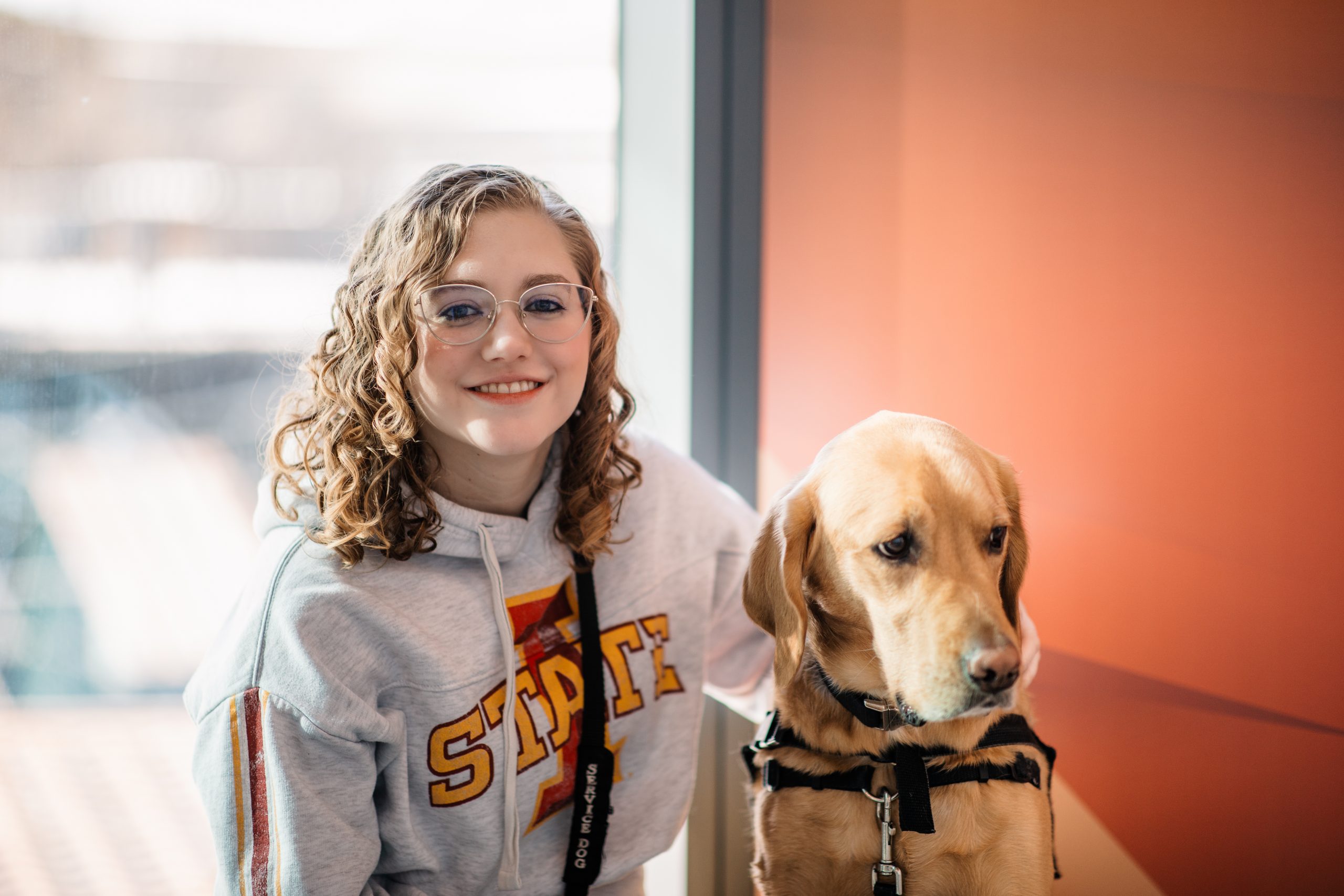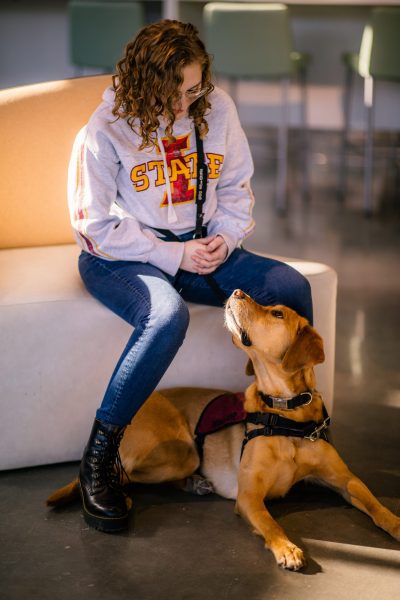Grace under pressure


Content warning: This article contains references to mental illness, self-harm, and suicide.
Aliya Warth wants to change the world, and they have a doggone good plan in the works to make it happen.
Warth, a junior sociology major with a minor in animal science, originally majored in psychology until they enrolled in a sociology course.
“I’ve always been interested in the way that society affects humans and the way that humans affect society, so I took one singular sociology class and I’m like, ‘I’m switching my major,’” Warth said. “I figured out through that class that this is something I wanted to do. I want to create positive change in our society because growing up I got to see how society affected people.”
Warth’s desire to positively impact society is the impetus for their entrepreneurial project with the College of Liberal Arts and Sciences’ Innovation and Entrepreneurship Academy, also known as I+E Academy. They are creating Grace Farms, which they intend to be the first Assistance Dogs International-accredited service dog organization in Iowa that focuses on training psychiatric service dogs for anyone who needs them.
Triumph over tragedy
Warth was inspired to develop Grace Farms as a result of mental health struggles within their family. Their older brother battled with post-traumatic stress disorder (PTSD) and major depressive disorder for much of his life. Sadly, he completed suicide in 2020.
“I came home one day and found out my brother had died. It was around that time that I realized we did everything possible that was available in Iowa for him,” Warth said. “We brought in the best doctors. We put him in a long-term treatment facility. We did anything and everything that Iowa offered for mental health services and it still wasn’t enough.”
The trauma of losing their brother catapulted Warth into their own mental health battles, including PTSD, major depressive disorder, and self-harm. They successfully pursued several avenues of care, but when they sought a service dog in Iowa through the accredited organization ADI, they were denied help because they are a civilian, not a military veteran. Through additional research, Warth discovered there are very few ADI-accredited organizations throughout the world that will provide service dogs to civilians with psychiatric needs.
That, Warth decided, is how they will change the world.
Constant companion

Warth secured an accredited service dog named Windsor from North Carolina about two years ago. Windsor, a 4-year-old Labrador and golden retriever mix, is their constant companion. He is highly trained to sense their panic attacks and PTSD episodes prior to them happening, and then he calms and comforts them.
Windsor even picked up on Warth’s latest health challenges before doctors could diagnose them. In June 2022, Warth began fainting randomly and often.
“We couldn’t figure out what was going. Then one day, Windsor alerted me, which is something he usually does before I have a panic attack,” they said.
Warth ignored Windsor’s warning because they were hanging out with a friend and feeling no anxiety. Five minutes later, they suddenly fainted.
“He caught on to whatever changed in my physiology and he started alerting me to fainting episodes before my doctors even knew what they were about,” Warth said.
Doctors eventually diagnosed Warth with postural orthostatic tachycardia syndrome (POTS), a condition that causes the heart to beat faster than normal when transitioning from lying down to sitting or standing. They also have inappropriate sinus tachycardia, which means their heart rate is much higher than it should be. Medications are helping to treat their heart conditions, but having Windsor by their side day and night is truly the best medicine. Now, through Grace Farms, they want to give others an opportunity to receive help from a service dog.
“My goal is to have therapists and psychiatrists refer clients, who they think could benefit from a psychiatric service dog, to Grace Farms as an alternative treatment plan if therapy and medication aren’t working, or if the client does not want to partake in medication,” Warth said.
Work in progress
Warth is in the process of educating mental health care providers about the different types of assistance dogs, especially those accredited by ADI, like Windsor. They have presented to groups of therapists, university clubs, and school organizations to spread the word about the benefits of psychiatric service dogs for civilians.
“If we educate the original care team about this, then they can educate their clients about the benefits,” Warth said. “I want therapists and psychologists to make the recommendation instead of the client having to seek out appropriate service dog organizations.”
This summer, Warth intends to learn how to train service dogs as part of their continued development of Grace Farms.
“It’s a lot, but I’ve never been one to back down,” they said. “I’m going to take it on.”
If you or someone you know needs immediate mental health care or may be suicidal, contact the U.S. National Suicide Prevention Hotline – dial or text 988.